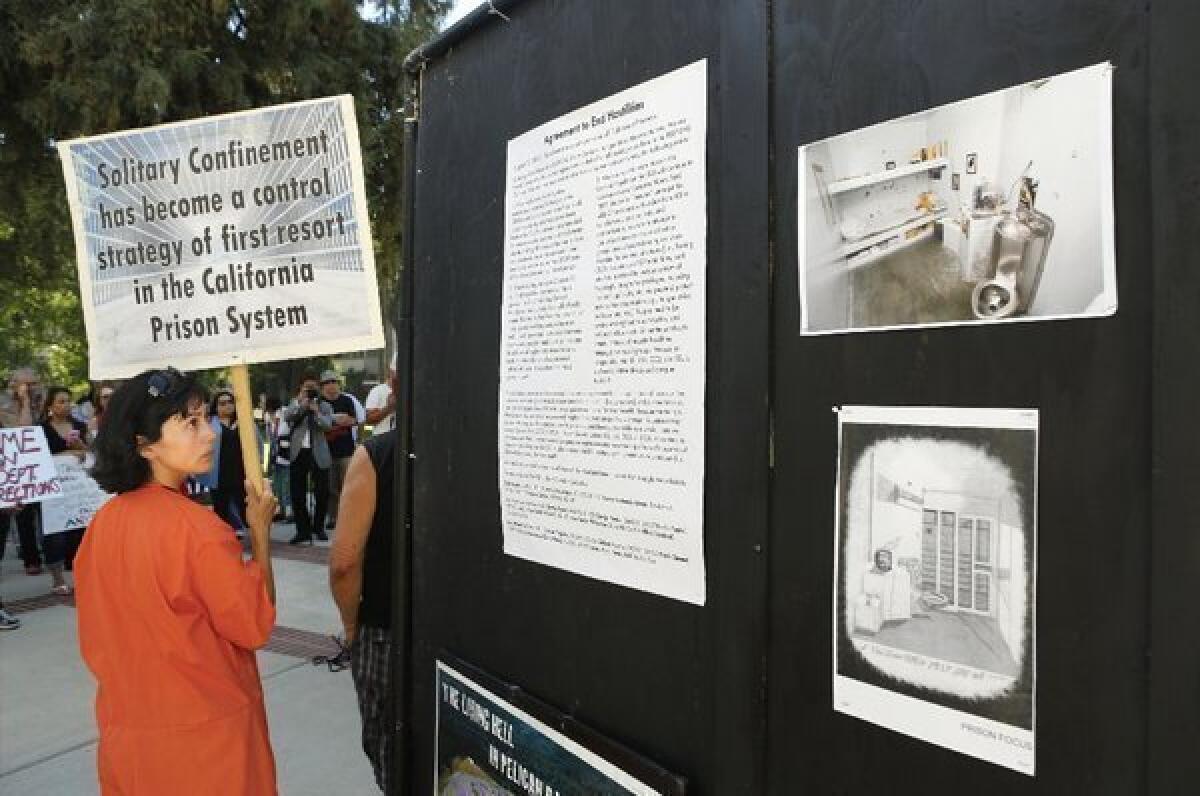L.A. Now Live: Inmates end California prison hunger strike

Join us at 9 a.m. when we talk with Times reporter Paige St. John about the end to California’s largest prison protest after a two-month hunger strike.
The protest ended Thursday without inmates winning major concessions on solitary confinement conditions — their main grievance — but with the promise of legislative hearings on the issue.
The strike, which began with 30,000 inmates refusing meals and ended with about 100, drew international attention to California’s use of prolonged prisoner isolation. It was orchestrated by a few inmates in isolation at Pelican Bay prison near the Oregon border.
By this week, nearly 10 protesters a day were collapsing or otherwise required medical care. On Thursday, prison medical workers sought to move four of the most frail to medical wards, but those inmates refused to go, an official said.
Meanwhile, inmate leaders, even as they agreed to resume eating, said they had merely “suspended” their protest.
The strike triggered an announcement last week that lawmakers who oversee prison policy would hold public hearings this fall on conditions in California’s maximum security prisons. Corrections officials say segregation units in those lockups are needed to control prison gangs responsible for violence and crime.
The legislators have vowed that their hearings would result in proposals for policy changes. Meanwhile, inmates and their lawyers are pursuing two federal lawsuits challenging California’s isolation policies.
More to Read
Sign up for Essential California
The most important California stories and recommendations in your inbox every morning.
You may occasionally receive promotional content from the Los Angeles Times.










